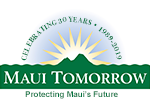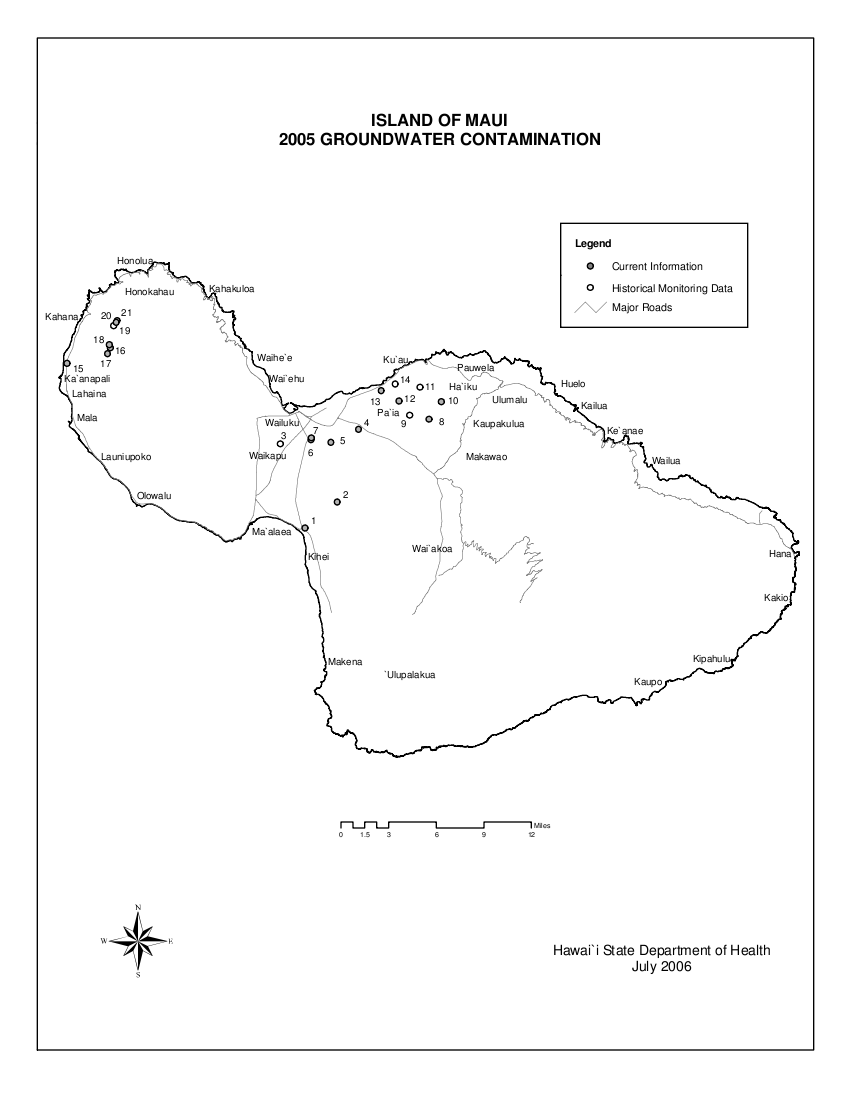Excerpted from article by BRIAN PERRY of the Maui News
Council members voted to allow the county Department of Water Supply to reopen its Hamakuapoko wells, despite ongoing opposition to using water that’s been tainted by agricultural pesticides…
Alarm about agricultural contaminants, including DBCP, led to the County Council in 2006 to ban its use. The bill, backed by Water Resources Committee Chairman Victorino, would only allow water from the well to be used for agricultural purposes, for public consumption during droughts and as a backup to the county Department of Water Supply’s Upcountry system….
The administration of Mayor Alan Arakawa supports reopening the wells, maintaining that the water can be treated to levels where it will be safe for consumption.
But some testifiers expressed skepticism and distrust in the government’s ability to safeguard public health.
Paia resident Steve Slater listed more than a dozen chemicals used in cultivating sugar, and asked: “How can we have such disregard for the health of our citizens to assume that filtration through granulated carbon is going to ensure the removal of known extremely carcinogenic chemicals from drinking water?”
Speaking as an individual, Dr. Lorrin Pang, who serves as Maui District health officer for the state Department of Health, urged council members to consider the precautionary principle of not taking action until fully understanding potentially toxic substances, “especially if the bad effects might be irreversible.”
“Now we have the opportunity to act on this principle before we try to drink the water,” he said. He also cautioned about the issue of “toxicity of mixtures of chemicals.”
Paul Koehler, director of Hawaii community affairs for Monsanto, testified that water source development has failed to keep pace with Maui’s growing population, and much of Upcountry’s water has been directed toward homes and away from farms….
Keokea resident Marilyn Hillman said that although she has been waiting for a water meter for 13 years, she did not support using polluted water from the Hamakuapoko wells.
“It is much more sensible and fiscally responsible to not only have the polluters of the wells clean up the water, but also let them use it for their agricultural purposes,” she said, asking council members to support an amendment from Cochran that would prohibit the use of the water for human consumption.
Paia resident Karen Chun submitted testimony calling on council members to “please err on the side of caution.”
“Once we’ve given this water to pregnant mothers and children, we’ve set in motion the course that could result in breast cancer and genital malformations” because of the DBCP contamination, she said.
Former Department of Water Supply Director Jeffrey Eng submitted testimony in favor of using the wells, but urged council members not to place conditions or restrictions on its use.
Eng said operating granular-activated carbon treatment to clean the water of contaminants requires continuous water flow, “otherwise microbiological growth will rapidly occur, resulting in contamination.”
Replacing a contaminated system is costly, he said.
Cochran attempted three times to substitute bills or make amendments to ban human consumption of the Hamakuapoko well water, redirect it for agricultural use or disallow the county from spending money on decontaminating the water. But all of her attempts failed because no council members seconded her motions….
Cochran said expert opinion on the use of the water wasn’t unanimous on the effects of a combination of contaminants.
“It is our social responsibility to protect the public,” she said, empathizing with testifiers who said “they felt the process was failing them.”
Victorino said those opposed to using the water were bringing “hysteria” into Council Chambers…
Cochran cast the only vote against reopening the wells.

